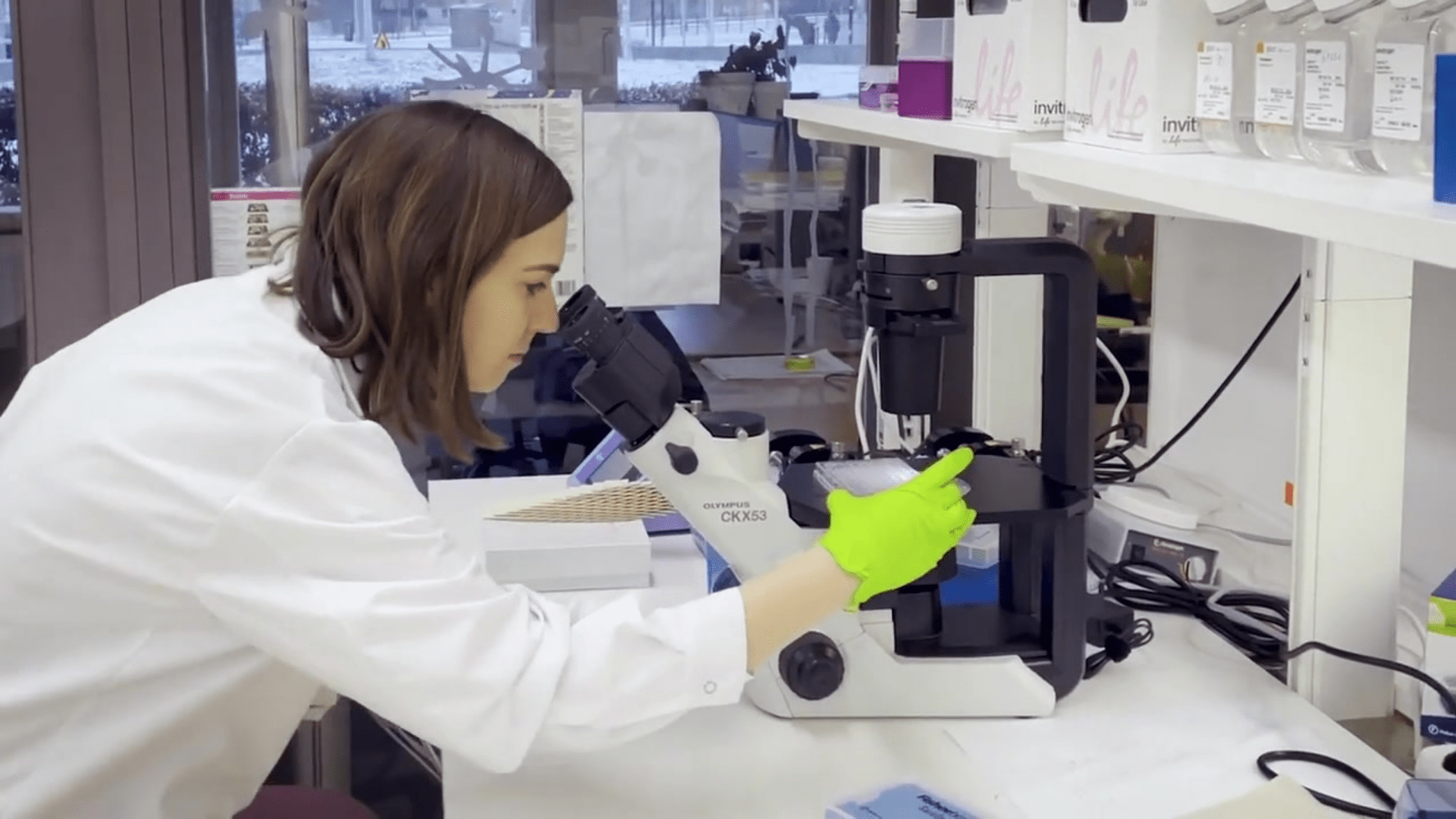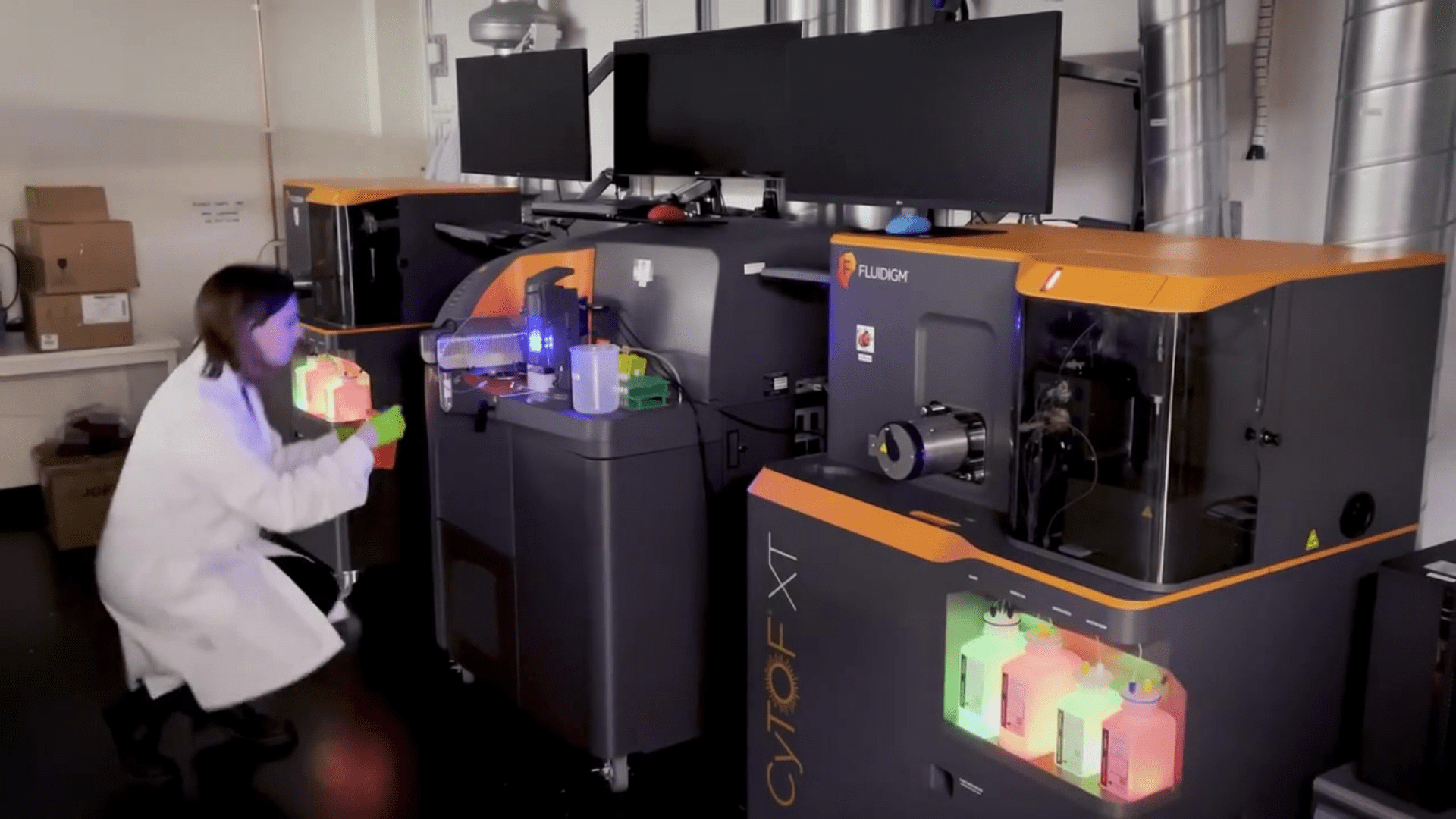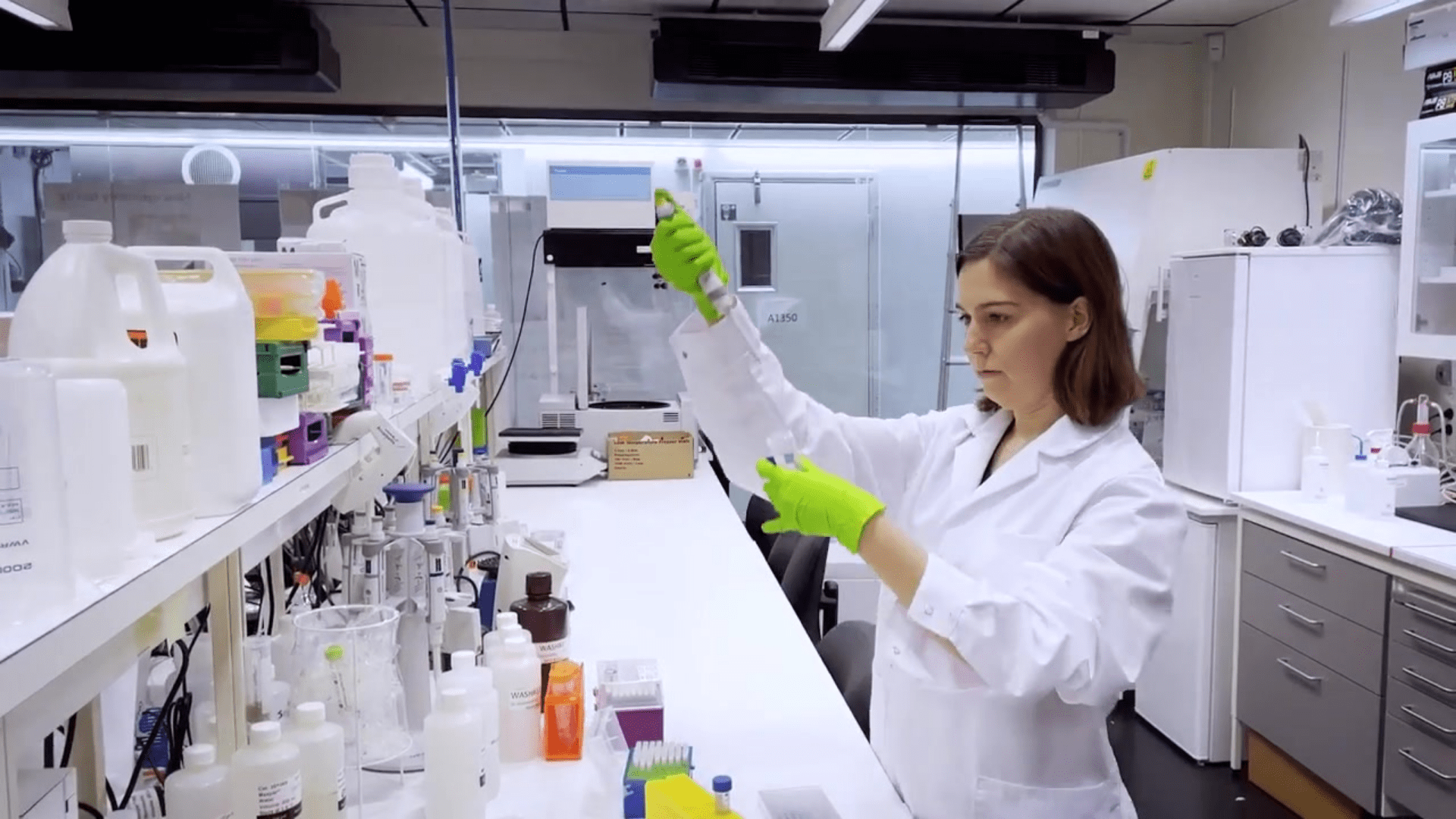Dr. Camila Consiglio is monitoring Swedish citizens who are undergoing sex reassignment therapy to study how these sex hormones impact their immune system over time.

By Justin Chapman
It is well established that men generally mount less robust immune responses and have higher severity of infections, while women display heightened responses to vaccines and generally have an increased frequency of side effects following vaccinations.
In order to find out why, Dr. Camila Consiglio is monitoring Swedish citizens who are undergoing sex reassignment therapy to study how these sex hormones impact their immune system over time.
It is the visionary nature of this potentially groundbreaking work that led the Michelson Medical Research Foundation and the Human Immunome Project to award Dr. Consiglio one of the Michelson Prizes: Next Generation grants. Dr. Rong Ma of Emory University and Dr. Nicholas Wu of the University of Illinois at Urbana-Champaign are also recipients of the prize, a $150,000 grant given annually to investigators 35 or younger who are advancing the study of human immunology, vaccine discovery, and immunotherapy.

“We’ve all become very aware that there are sex differences in COVID, where men have higher rates of hospitalizations and deaths when compared to women,” Dr. Consiglio said. “While studying sex differences in immunity has been a growing field of research, most people were unaware of such differences. Now we’re all thinking about this. And as scientists, we’ve also become more aware of it. But this is not a finding that is exclusive to COVID infection. In fact, there are a lot of differences between men and women in terms of disease susceptibility and disease severity.”
Dr. Consiglio began studying medicine because she wanted to help prevent and treat diseases. Being part of the solution became her life calling.
She soon realized that the immune system is incredibly complex and highly connected to so many other systems in the human body, and she became drawn to immunology in particular because she saw its potential to explore this connection throughout the body and thus create better treatments for diseases.
Today Dr. Consiglio is investigating the mechanisms underlying sex hormone-specific regulation of human immunity by using innovative systems-levels approaches to analyze changes in blood immune cells from subjects at multiple timepoints before and after initiation of sex reassignment therapy with sex hormones.
She began her career in Brazil, where she was born, and was drawn to the field of biomedicine to understand, treat, and prevent disease. When she moved to Buffalo, New York, to pursue her Ph.D., she joined the tumor immunology department at the Roswell Park Cancer Institute. There she began studying how testosterone modulated a specific group of cells of the immune system called the myeloid cells, in the context of cancer and infections, to ultimately be able to better design anti-cancer therapies.
While pursuing her Ph.D., Dr. Consiglio joined a lab in Paris and expanded on that research there. In 2020, she moved to Sweden for her postdoc to continue her current work exploring the different immune responses between men and women and how to use that knowledge to create better treatments against disease. She is currently the Marie Skłodowska-Curie fellow in Petter Brodin’s Lab in the Women and Children’s Department of the Karolinska Institutet.
Compared to women, men tend to experience more severe infections from a variety of infections, including viral, bacterial, and some fungal infections as well. Men also get cancer more often and have a higher morbidity rate than women. On the other hand, women tend to respond to vaccines better than men. Studies have shown that for certain vaccines, women can produce twice as many antibodies as men.

“The Michelson Prize will help me put my own ideas into place, to finally start asking some of the questions that have intrigued me for a very long time. Without this funding, it wouldn’t be possible.”
—Dr. Camila Consiglio
“You might conclude that women are doing great, but there’s also the flip side of this, because women also tend to have more side effects that come with this heightened immune reactivity,” Dr. Consiglio explained. “Women have a higher prevalence of autoimmunity compared to men (in certain cases, like systemic lupus erythematosus, the ratio of women to men can be 9:1 or higher), which is when your immune system attacks your body.”
Sex chromosomes are the major, underlying causes of these differences. Men have an X and a Y chromosome, while women have two X chromosomes. Dr. Consiglio wanted to figure out how these sex chromosomes and sex hormones can impact the immune system and disease.
Sex hormones are different between males and females throughout their lives. When males hit puberty, they have higher testosterone levels which remains high until it reduces during andropause around age 50 or more. When females hit puberty, they have higher levels of estradiol and progesterone. This also changes throughout pregnancy and when women reach menopause, those hormones decrease. These different sex hormones between the sexes might have important effects in modulating the immune system and making people more or less susceptible to diseases.
While she mainly used mouse models to study these effects during her Ph.D., Dr. Consiglio is now studying sex differences in immunity from human cohorts who donate blood while undergoing sex reassignment therapy.
“We take a snapshot before transition—either male-to-female transition or female-to-male transition—and after transition to look at how the immune system has changed,” she said. “For the Michelson Prize, I’m going to go even deeper now, to utilize some state-of-the-art technologies and methods in the field that are going to allow me to learn how testosterone is acting on their immune systems by looking very specifically into many different parameters at once.”

She plans to look at over 60 cells, 180 proteins, and tens of thousands of RNAs, which is very different from what scientists have done before. Many previous immunology studies focused on looking at one molecule or cell at a time. Her goal is to employ a more comprehensive approach so that when she analyzes all of the data together, she can integrate this knowledge into scientists’ understanding of the immune system as a whole.
“At this point, (the Michelson Prize) really helps me, first of all, to put my own ideas into place, to finally start asking some of the questions that have intrigued me for a very long time,” she said. “Without this funding, it wouldn’t be possible.”
Dr. Consiglio also offered advice to future researchers who are considering applying for the Michelson Prize. The 2022 application opens April 1.
“Think big picture,” she said. “The work that I’m proposing will definitely help vaccine development and other immunomodulatory therapies at large. If we understand how men and women have differences in immune responses, how they respond differently to vaccines, you can then design a better vaccine strategy for a male versus a female, or maybe take that knowledge that we’re extracting from this research and generate novel technologies that can help everyone. So think about how your research is going to benefit the most people.”
Read the announcement of the 2021 Michelson Prizes recipients here, read about Dr. Nicholas Wu here, and stay tuned for a story about Dr. Rong Ma.

